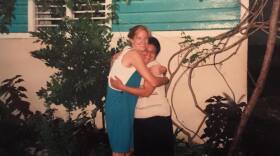Last week I spent four days in Philadelphia at the Society for Applied Anthropology meetings. I must admit, that while I don't normally lack self-confidence, these meetings always leave me feeling a bit like a charlatan. The SFAA is a professional organization that brings together people from a wide variety of backgrounds (not only anthropology) whose work seeks to make a positive effect on the quality of life in our world today.
Every year I find myself comparing my work to that of my brilliant teachers, friends, and colleagues whose research makes the world a better place for everyone. Whether they are studying ways in which humans and elephants can better coexist; are bringing high quality health care to impoverished peoples; or are working on social justice issues like the on-going environmental crisis in Flint, Michigan - my colleagues make a difference in the best kind of way. My self-doubt comes from the fact that I consider myself a teacher first and a researcher second. Yes, I do conduct research, but mostly so that I can be a better teacher. Having current examples of how anthropology brings about change for good in the world helps students understand why studying different ways of tackling problems is not only interesting, but worthwhile.
In my opinion, teachers and the profession of teaching have never really been given the respect that they deserve. All of us, regardless of what we do as adults have been influenced by teachers. If I asked you to think of your favorite teacher, I don’t doubt that you would be able to name her or him in a heartbeat. Yet today more than ever, there seems to be a profound devaluation of the work teachers perform and a disrespect for the profession in general.
I come from a long line of teachers. My grandmother taught in a one-room schoolhouse and my mother taught consumer science (previously known as home economics) for over 30 years. I knew that I too wanted to be a teacher, but since I have a low threshold of tolerance for people between the ages of five and seventeen, I earned a PhD in order to teach at the university level.
I think I have the best job in the world. As one of my professors, Russ Bernard once said, “What other job constantly surrounds you with 18-21 year olds?” Having conversations every day with young people keeps me engaged and constantly learning. The other thing that makes me love my job so much is watching young people “wake up” to the reality of the world as they become more engaged human beings.
Granted, I have taught hundreds, if not thousands of students over the years who have only taken an anthropology class because it is required. They come to class because they need the course for graduation, not because they love the subject. There have been semesters where I felt like Hermione Granger walking into Azkaban and have questioned whether I still want to be a teacher. But just when I need it most, there are letters and emails from former students validating that what I do is important.
Many years ago, I gave a guest lecture on my research on flooding along the Mississippi River at the University of Iowa. Talking to a room of undergraduate, graduate students and faculty, I spoke for an hour about how our research revealed that disasters highlight the socio-economic injustices already present in communities. This past week in Philadelphia, one of those faces from that room many years ago came up to me and said “I just wanted to thank you for your work. As a student it was so great to see that someone out there was interested in the same issues I am.”
That face belongs to Jenn Trivedi, who is now a post-doctoral researcher at the University of Delaware’s Disaster Research Center. Her work on disasters makes a positive difference in the world as she influences state and federal policies surrounding reconstruction after traumatic weather events. While I certainly don’t claim to be her teacher, my being a teacher did influence her in some small way.
So to all my fellow teachers from pre-school to post-graduate, thank you for the work you do. For teaching my then 5 year old to write her very long and complicated last name. For challenging my now 17 year old to think critically about issues of racism and slavery in our country. For taking time after you are “off the clock” to meet with my children to rework yet another paper so that they can reach their potential as writers in high school. For grading copious physics papers and Spanish tests. Thanks for your dedication to our future. You work, our work is important. As Stephen King once wrote, “We never know which lives we influence, or when, or why.”
Heather McIlvaine-Newsad is a Professor of Anthropology at Western Illinois University.
The opinions expressed are not necessarily those of the university or Tri States Public Radio. Diverse viewpoints are welcomed and encouraged.






